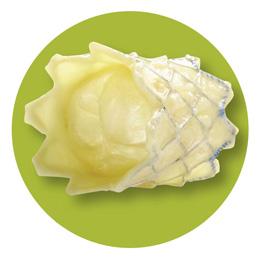
November 2, 2009 — Clinical trial results published in this week’s Journal of the American College of Cardiology (JACC) describe six-month outcomes for patients using the Melody Transcatheter Pulmonary Valve from Medtronic, Inc. The valve is implanted through a catheter procedure instead of open-heart surgery in patients with congenital heart disease affecting the function of their pulmonary valve.
The first-of-its kind device is currently under review by the U.S. Food and Drug Administration (FDA) for approval of a humanitarian device exemption (HDE), based on evidence of safety and probable benefit for the Melody valve. On July 22, an FDA advisory panel voted unanimously to recommend conditional approval of the Melody valve, but the device remains investigational in the United States until FDA makes a final decision.
“The Melody transcatheter valve is a viable procedural alternative designed to reduce the number of invasive surgeries and their associated risks,” said Evan Zahn, M.D., director of cardiology at Miami Children’s Hospital’s Congenital Heart Institute and lead author of the published study. “It represents an exciting breakthrough for individuals who typically require numerous open-heart surgeries during the course of their lifetime.”
The study is the first prospective, multi-center trial conducted to evaluate the implantation of the Melody valve. The JACC article reports procedural success in 97 percent of patients; encouraging immediate and six-month patient outcomes with improvements in heart and valve function; and overall acceptable study safety outcomes with no deaths or long-term procedure-related medical complications.
The Melody valve is the first transcatheter valve of any kind to be approved for use anywhere in the world, having received regulatory approvals in Western Europe and Canada in 2006, according to the company. To date, more than 1,000 patients worldwide have benefited from the Melody valve.The pulmonary valve connects the heart to the lungs, where blood is enriched with oxygen before being pumped to the rest of the body.
About 34,000 infants are born with congenital heart disease every year in the United States. A small percentage of these patients are born with a malformation of the blood flow path between the right side of the heart and the lungs. Early in life, these patients must undergo open-heart surgery to implant a prosthetic valved-conduit to establish adequate blood flow.
For more information: www.medtronic.com


 December 24, 2025
December 24, 2025 









